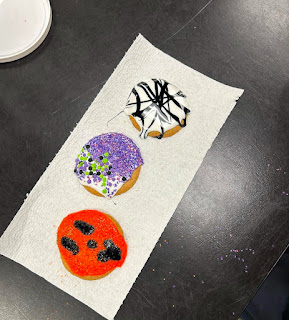A majority of Puerto Ricans have voted for their home island to become part of the United States, according to CNN, 61% had voted for statehood compared to the remaining percentage hoping to become a free association or just out right independent.
Governor Luis Fortuño is pushing for the U.S. Territory to become a part of the United States, he had even written a letter to President Obama. “The plebiscite results constitute a clear rejection by the U.S. citizens of Puerto Rico of the continuation of the current territorial status of Puerto Rico,” Fortuño wrote, according to El Nuevo Día. “It was also a clear vote, among the non-commonwealth options, for Puerto Rico to be admitted as a state of the union.”
There was a two part questionnaire on the ballot for Puerto Rican citizens to vote upon. Tuesday November 6th is when the confusion had began.
In the first section of the ballot, Puerto Ricans were asked “whether they favored the island’s current commonwealth status,” according to Huffington Post, “52.4 percent of voters said they were dissatisfied with their current relationship with the United States, versus 44.7 percent who wanted to keep things as they are.”
The second question on the ballot asked voters whether they wanted to become a U.S. state, an independent country or a free association state. It was a requirement for all voters to answer the question. Keeping the current status as a United States Territory was, however, not an option. Apparently over 470,000 casted blank ballots and statehood received 809,562 votes. It was well short of majority, only accumulating to 44.9 percent.
Hunter Ramirez, sophomore, said, “I didn’t know Puerto Rico was being voted on to become part of the United States. I want them to become part of us, it could be beneficial.”
Strangely it seems, Puerto Ricans had Fortuño voted out of office. He lost the election to Governor Alejandro Garcia Padilla. Their views on Puerto Rico’s status is a striking contrast. Where Fortuño wishes for the islands status to be upped to statehood, Garcia wants it to remain a territory. Few in Congress will see any “pressing need to pass legislation related to the islands status.” According to a post in The Hill, “because of the numbers behind the vote and the political circumstance under which it occurred.”
Briana Burgos said, “If Puerto Rico becomes the 51st state a lot of their benefits will be taken away. They won’t be a territory anymore.”
Despite the referendum it seems Puerto Rico likely become a state until 2015, according to an article in USNews. Politically speaking there is a slim chance of the island becoming a state, they’re known to be a shade of mostly Democrats. Ultimately that could be troublesome for a mostly Republican –controlled House, according to John Hudak, a governance studies fellow at the Brookings Institution. With November 6th’s vote, Hudak says that if Democrats make gains in 2015, they have an easy mandate to follow through with statehood.
An anonymous freshman said, “I knew it would want to become a state one day or another. I think they shouldn’t, then they’d get taxed.”
Congress will look at how Puerto Rico could be beneficial for the United States or how it could take a toll on the plummeting economy. Not that the island’s statehood isn’t an important matter, but it is another problem added to the government’s stack of issues.























